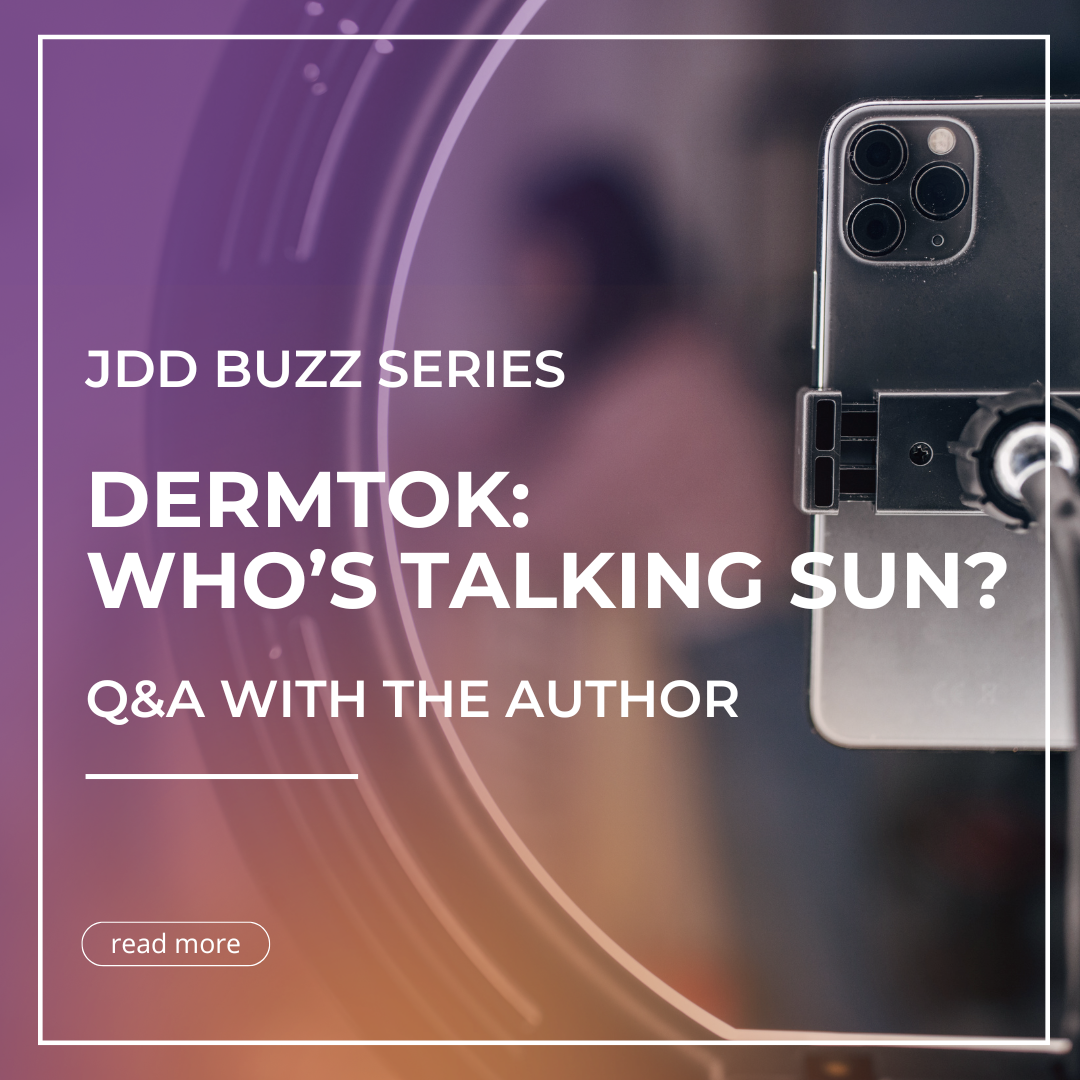TikTok is a source of beauty and skin health information for the masses. Yet much of the content is not produced by board-certified dermatologists or even other healthcare professionals. So who’s creating TikTok content about sun protection and skin cancer? Does any of this content address skin of color? Those are the questions a new cross-sectional analysis published in the July Journal of Drugs in Dermatology sought to answer.
I interviewed author Rachel R. Lin, BS, an MD/MPH candidate at the University of Miami Dr. Phillip Frost Department of Dermatology and Cutaneous Surgery.
What led you to want to investigate sun protection content on TikTok?
I was interested in the availability of dermatology information on popular social media platforms such as TikTok. The PI, Dr. Heather Woolery-Lloyd, had previously investigated the role of TikTok on common skin conditions, such as acne and rosacea, and we thought it would be interesting to conduct a similar study on sun protection, particularly since misinformation on topics like skincare and tanning are on the rise.
You looked at the top 100 videos with sun protection hashtags on TikTok and analyzed who created the content. What did you discover?
We found that most creators making content about sun protections were not board-certified dermatologists. Rather, board-certified dermatologists comprise only 16.6% of the videos.
You also looked at whether the sun protection content explicitly addressed skin of color. What were your findings?
We found that a very small proportion of all sun-protection videos (2.8%) addressed skin of color.
Did the results affirm or negate your hypotheses? Were any of the results surprising?
These results affirmed our hypothesis that most content creators on TikTok making videos about sun protection and skin cancer were not dermatologists or licensed professionals.
Why is your data important for dermatology clinicians to consider?
TikTok has become increasingly popular as a source of information and a leading search engine for patients seeking medical information. Therefore, it is important for dermatologists to know where patients may be receiving their information from. These results should encourage dermatologists who create content to continue sharing accurate sun protection information online.
How do your results compare with other studies of dermatology content on TikTok?
They correlate strongly with other studies of dermatology content on TikTok. Those that have analyzed videos and their creators note that board-certified dermatologists are the minority of creators for most videos on dermatologic topics.
What should dermatology clinicians do differently in light of this study?
Continue educating patients and clarifying misinformation that may be present online!

